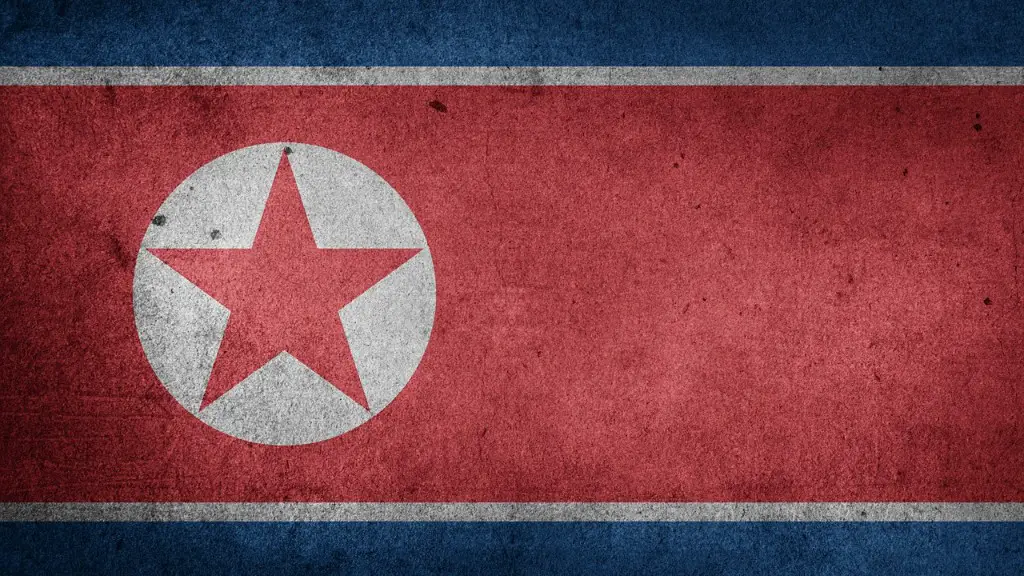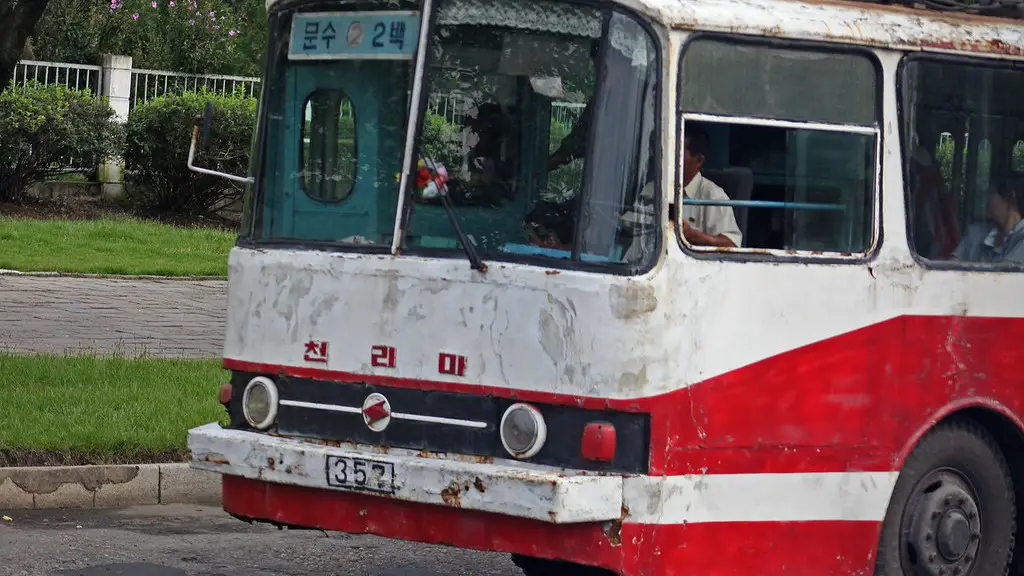Nuclear Proliferation
The concept of nuclear proliferation has become a major concern over the past few years. With the increasing number of countries acquiring nuclear warheads, the risk of a global nuclear conflict has grown significantly. North Korea, one of the most progressive countries on the issue of nuclear weapons development, has been constantly increasing its stockpile of nuclear warheads and ballistic missiles. This has raised a lot of alarms in the international community, as a nuclear conflict caused by North Korea could potentially spread all across the world. But what would actually happen if North Korea were to launch a nuclear strike?
To answer this question, we first need to understand what it takes for a missile to reach and cause sufficient damage in another country. North Korea possesses missiles that can reach the United States, South Korea and Japan and the most powerful warheads among these have a range of up to 10,000 km. This means that North Korea is able to launch a strike from its territory and have it reach any country within its range. This ability alone is enough for the entire world to be worried about the potential consequences of a North Korean nuclear attack.
The potential damage caused by a North Korean nuclear attack would depend largely on the type and size of weapons used. North Korea has been developing nuclear weapons since the early 1990s and it is estimated that they are currently in possession of around 20-30 nuclear warheads. These warheads are more powerful than the ones used in Hiroshima, and thus, their impact could be much larger and more devastating. Beyond the physical damage, a nuclear strike by North Korea could also have far-reaching consequences for international relations. It could lead to increased tensions between the countries involved, which could even lead to war in certain cases.
The consequences of a North Korean nuclear attack would also be felt in the economic, environmental and social realms. For example, the economic consequences could include a sudden decrease in exports, a drop in foreign investments, a disruption in global trade and an overall destabilization of financial markets. On the environmental front, a nuclear attack could lead to radiation poisoning, the contamination of air, land and water, and an increase in global temperatures due to the release of radiation in the atmosphere. Finally, a North Korean nuclear attack could lead to an increase in social unrest, given the potential for displacement and the disruption of normal life.
The potential impacts of a North Korean nuclear attack are widely recognized by international organizations and experts.The United Nations Security Council, for example, has imposed numerous sanctions against North Korea in an attempt to prevent its nuclear weapons program. Similarly, the International Atomic Energy Agency has expressed grave concern over the North Korean situation. Despite these measures, however, North Korea continues to develop and stockpile nuclear weapons which raises the possibility of a global nuclear conflict. For this reason, it is essential that the international community takes further steps to ensure that this nightmare scenario does not come to pass.
Military Response
A military response from other countries is one of the possibilities in the event of a North Korean nuclear attack. This is especially likely if a country like South Korea or the United States is targeted. South Korea and the United States have both deployed a number of forces in South Korea, and they also have thousands of troops and very advanced military equipment located in various parts of Japan and other Asian countries. In the event of a nuclear attack, they are likely to respond with a massive show of force, both in the form of air strikes, naval blockades, and ground troops.
The United States also has a vast arsenal of nuclear weapons at its disposal, and should it feel threatened, it has the capability to launch a retaliatory nuclear strike against North Korea. This could potentially lead to a full-scale nuclear war, with devastating consequences for everyone involved. For this reason, many experts advise against a military response and instead suggest that political and diplomatic options be explored.
A military response from other countries is certainly a possibility in the event of a North Korean nuclear attack. In this case, the US and its allies are likely to respond with a massive show of force, which could have devastating effects for everyone involved. As a result, many experts advocate for the use of political and diplomatic options to address the issue instead.
Social Impacts
Beyond the physical damage and economic disruption, a nuclear attack by North Korea would also have far-reaching social implications. The psychological and emotional trauma caused by the attack would be felt by people in the impacted region, leading to depression, post-traumatic stress disorder, and an increased risk of suicide. In addition, there is the potential for displacement, as people may be forced to flee the area in search of safety.
The social implications of a nuclear attack would also extend to other parts of the world, as it would lead to an increase in international tensions and mistrust. This would make it more difficult to conduct diplomatic negotiations and could even lead to further conflict in some cases. For this reason, it is essential that the international community takes further steps to prevent a North Korean nuclear attack from ever occurring.
The Role of China
Given its proximity and strong economic ties to North Korea, China is likely to play a major role in responding to a North Korean nuclear attack. China has been increasing its presence in the region for some time, and it has grown increasingly concerned about the North Korean situation. China has already implemented sanctions against North Korea, but it could take further steps to prevent a nuclear attack from ever occurring. This could include providing more economic and political assistance to North Korea, engaging in further diplomatic negotiations, and increasing its military presence in the region.
Ultimately, it is up to China to decide how much pressure it wants to apply to North Korea, and how it wants to respond if a nuclear attack were to occur. China’s actions in this regard will be crucial in determining the outcome of any potential conflict between North Korea and other countries.For this reason, it is essential that China takes further steps to prevent a nuclear attack from ever occurring.
International Cooperation
International cooperation is essential in order to prevent a North Korean nuclear attack from ever occurring. The international community needs to come together in order to find a solution to the North Korean crisis and to prevent a potential conflict from escalating. International organizations such as the United Nations, the International Atomic Energy Agency, and the European Union should all be involved in the process. They should work to increase diplomatic pressure on North Korea, to provide economic aid, and to bring it back to the negotiating table.
In addition, the US and China should cooperate in order to find a peaceful solution. Both countries have strong interests in the region, and they both have the power to influence the outcome of any potential conflict. As such, it is essential that they work together to find a lasting resolution to the crisis.
Finally, the international community must ensure that North Korea respects its international obligations. It is essential that the country is held accountable for its actions and that it stops developing nuclear weapons. It is only through this process of international cooperation and diplomacy that the risk of a North Korean nuclear attack can be minimized.
The Risk of Intercontinental War
One of the major risks of a North Korean nuclear attack is the possibility of an intercontinental war. In this scenario, other countries could get drawn into the conflict, leading to a major war with devastating consequences. It is essential that this possibility is taken seriously, and that steps are taken to prevent it from ever occurring. This could include a more proactive approach in diplomatic negotiations, increased economic efforts to choke off North Korea’s access to funds, and a heightened military presence in the region.
Furthermore, the international community must be prepared for the possibility of an intercontinental war. If a conflict does occur, it is essential that everyone does their best to limit its scope and duration, and to prevent it from escalating. The potential for a major global conflict should not be taken lightly, and all countries should take steps to prevent it from ever occurring.
Conclusion
In conclusion, the possibility of a North Korean nuclear attack is a serious threat to the world. The potential impacts of this attack could be devastating for everyone involved, and the risk of an intercontinental war should not be ignored. For this reason, it is essential that the international community takes further steps to prevent this scenario from ever coming to pass.




